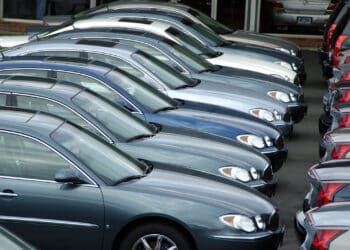Electric Vehicle Sales Lean Heavily on Leasing, Study Finds

U.S. leasing penetration of electric and hybrid vehicles is more than double the national average for its gas counterparts, according to a new study from Bloomberg New Energy Finance.
Nearly 80% of battery electric vehicles and 55% of plug-in hybrids are leased in the U.S. compared with a 30% penetration rate across the industry. Those figures don’t include Tesla Inc. vehicles because the company sells and leases directly from its website and therefore isn’t required to report leasing figures.
Of course, electric vehicles still make up a very small portion of the market — less than 1% in the U.S. — but it’s a sign that many are expecting big performance improvements over the next three years and aren’t committed to buying.
For example, battery prices have fallen by an annual average of 20% over the past five years, according to the study. At the same time, values for electric plug-ins have declined over a three-year span to 23% of their original MSRP, compared with 41% for a similar combustion engine model, according to Black Book. New 2018 electric car models are expected to retain 27.3% of their value in three years, the Bloomberg study shows.
In three year, those off-lease vehicles will include the first batch of some 12,000 Chevy Volts, which is going up against Tesla’s production-troubled Model 3.
That steep rate of depreciation makes some worried about the used market for these vehicles. However, there is an argument to be made for buying a used electric plug-in today: an electric engine should be more reliable from a maintenance perspective because it doesn’t run on tiny mini explosions and have fewer moving parts that can break, enhancements can be made remotely to EVs, and electricity prices are more stable than gas.
OEMs are confident there will be a second-hand market for these vehicles when the time comes, according to the report. As evidence, American Honda Finance only offers lease contracts on the hydrogen fuel cell version of the Honda Clarity; no loan contracts or cash purchases.
However, OEMs are mostly concerned with meeting fleetwide efficiency mandates so new sales will continue to be encouraged through attractive lease offerings.















